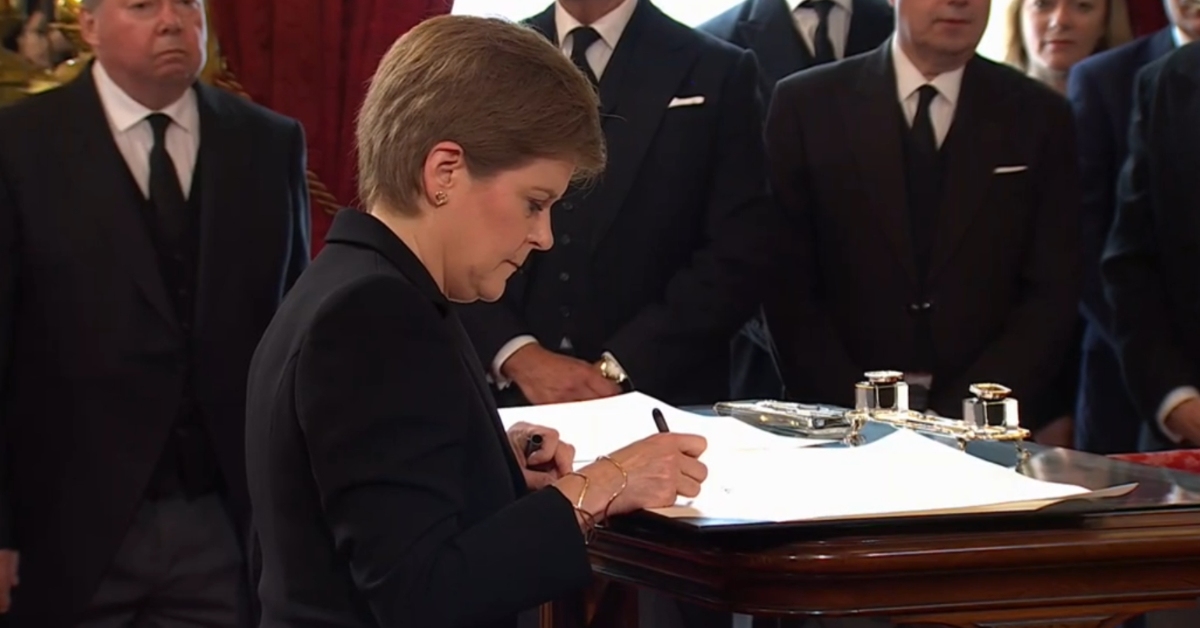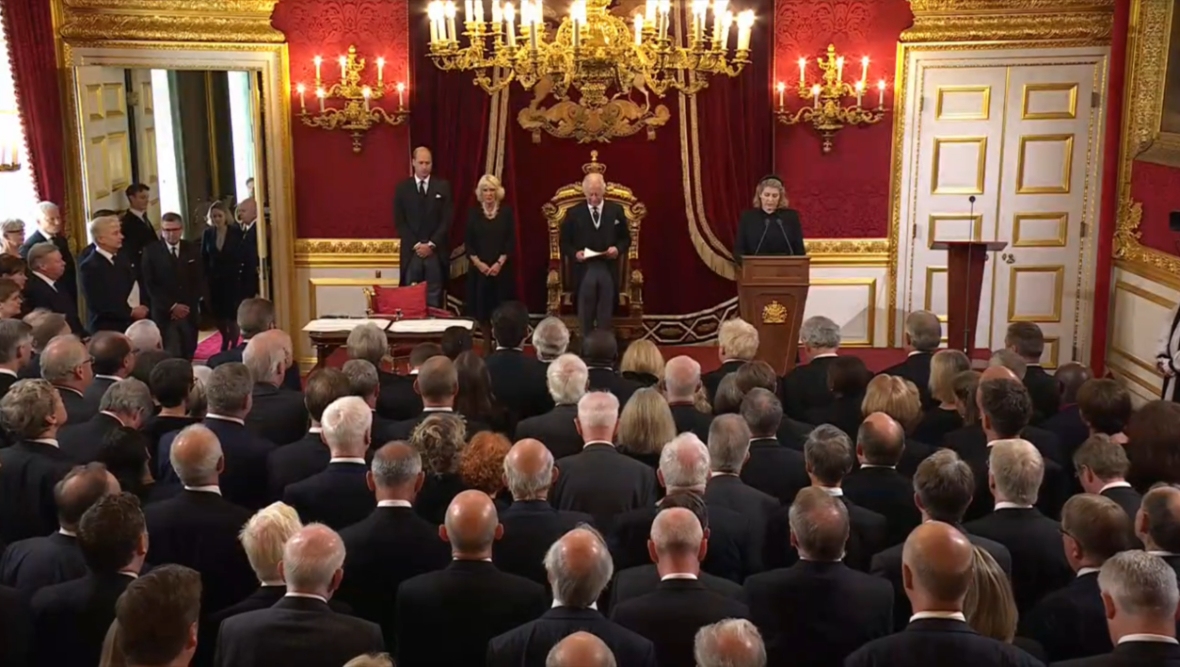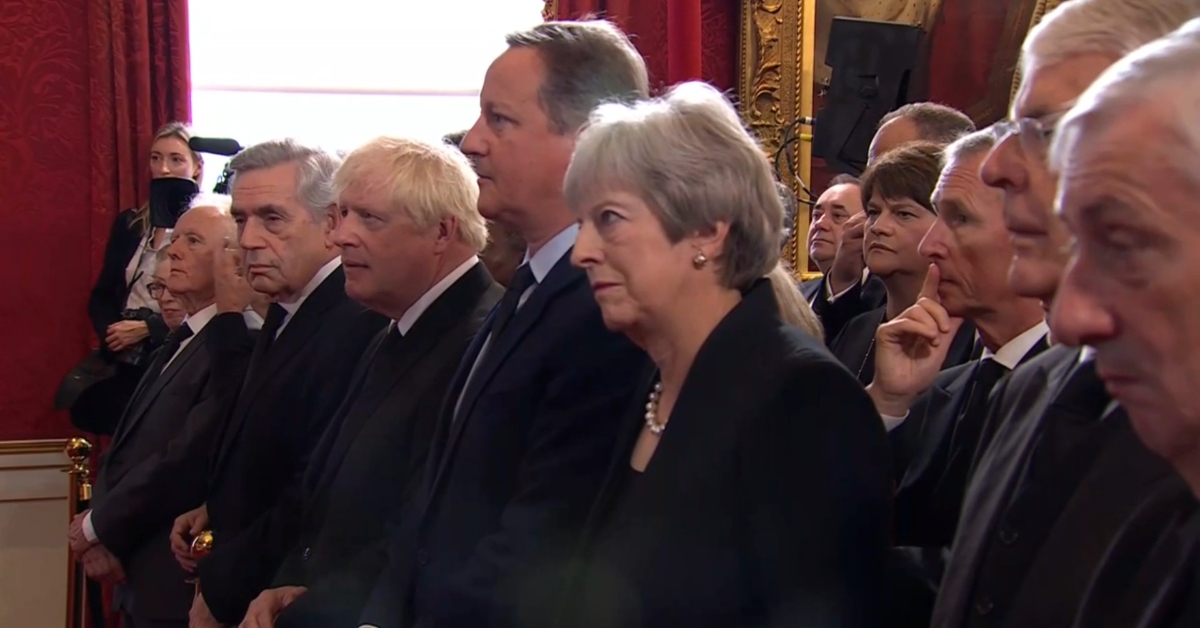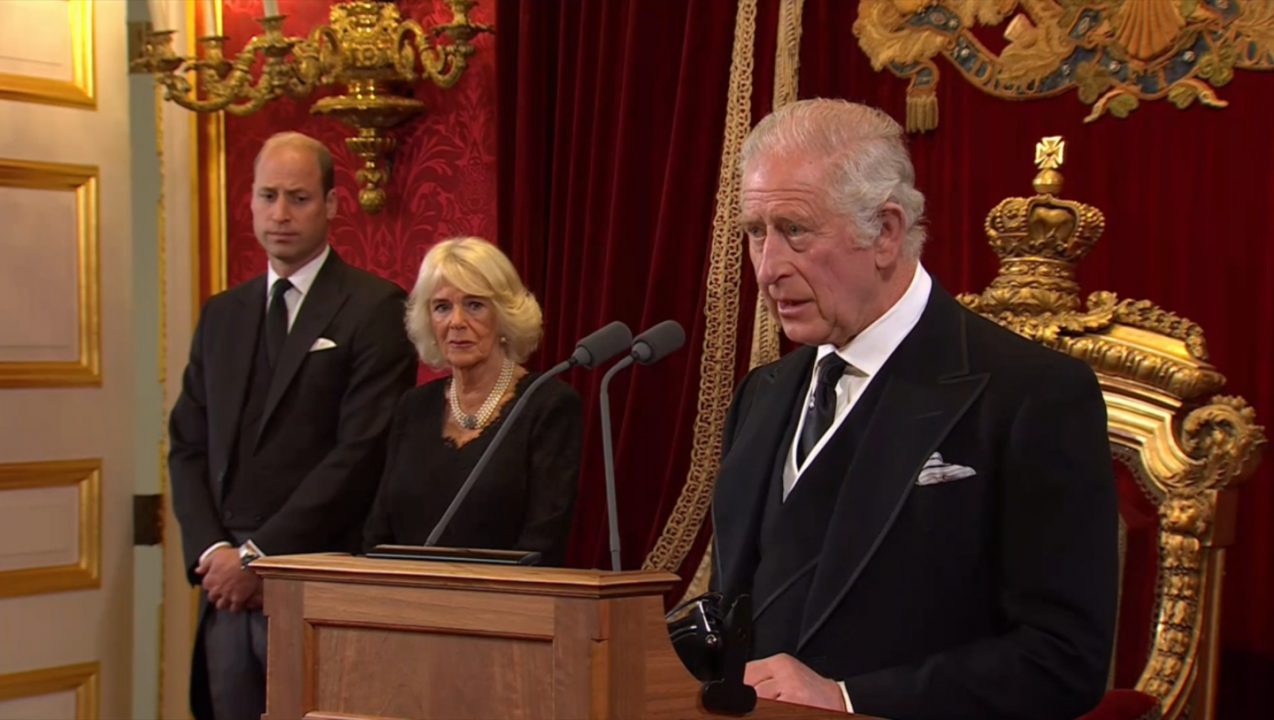King Charles III has been formally proclaimed the new monarch following a historic ceremony televised for the first time.
Charles’ role as King and name he will use was confirmed during a meeting of the Accession Council at St James’s Palace in London.
Following the meeting on Saturday morning, King Charles III addressed the Accession Council for the first time, paying tribute to his late mother Queen Elizabeth.
He said: “I know how deeply you and the entire nation, and I think I may say the whole world, sympathise with me in this irreparable loss we have all suffered.
 STV News
STV News“Her reign was unequalled in its duration, its dedication and its devotion. Even as we grieve, we give thanks for this most faithful life.”
Privy councillors including the new Queen Consort Camilla, the new Prince of Wales and Prime Minister Liz Truss took part in the ceremony.
Following tradition, the new King was missing from the opening part of proceedings.
 STV News
STV NewsBroadcast cameras were allowed into the historic event, giving the world a first glimpse of an ancient ceremony dating back centuries – and one of the first changes to convention instigated by the new King.
More than 200 privy councillors – a group of mostly senior politicians past and present, some members of the monarchy and other national figures – were present to hear the Clerk of the Council read the Accession Proclamation.
The new monarch became King the moment his mother died, but an Accession Council must be convened following the death of a sovereign – usually within 24 hours.
 STV News
STV NewsA host of former prime ministers were present including Tony Blair, Gordon Brown, David Cameron, Boris Johnson and Theresa May.
First Minister Nicola Sturgeon was present and took part in the ceremony by signing the official oath.
Former first minister of Scotland Alex Salmond was among those in the crowd of Privy Councillors.
King Charles III has been formally announced as the nation’s new sovereign during a meeting of the Accession Council by Lord President of the Council Penny Mordaunt.
The proclamation confirming Charles as King was signed by members of the Privy Council including the new Prince of Wales, the Queen, Lord President of the Council Penny Mordaunt, Prime Minister Liz Truss and the Archbishop of Canterbury Justin Welby.
Then King Charles III appeared before the Privy Council for the first time.
“It is my most sorrowful duty to announce to you the death of my most beloved mother,” he told them.
Paying tribute to the Queen at the Accession Council, the King said: “Her reign was unequalled in its duration, its dedication and its devotion. Even as we grieve, we give thanks for this most faithful life.”
The new King made his formal declaration before Prince William, the new Prince of Wales, signed the oaths followed by Charles’ wife Camilla, the Queen Consort.
The King signed the oath he had just formally declared in front of the Privy Council and approved an order that the day of the Queen’s funeral will be a bank holiday.
Then, at 11am, gun salutes were fired at Edinburgh Castle, Hyde Park and the Tower of London.
The first public proclamation of the new sovereign was read in the open air from the Friary Court balcony at St James’s Palace by the Garter King of Arms.
The ceremonial event continued with a second proclamation made outside the Guildhall in London where aldermen, high officers, members, Mercers Company representatives, the High Sheriff and Under Sheriff of Greater London, the Band of the Honourable Artillery Company, Corps of Drums and the Pikemen and Musketeers and others assembled.
The newly declared King left St James’ Palace for Buckingham Palace where he was expected to hold audiences with officials and the Prime Minister.
Follow STV News on WhatsApp
Scan the QR code on your mobile device for all the latest news from around the country


 STV News
STV News

























